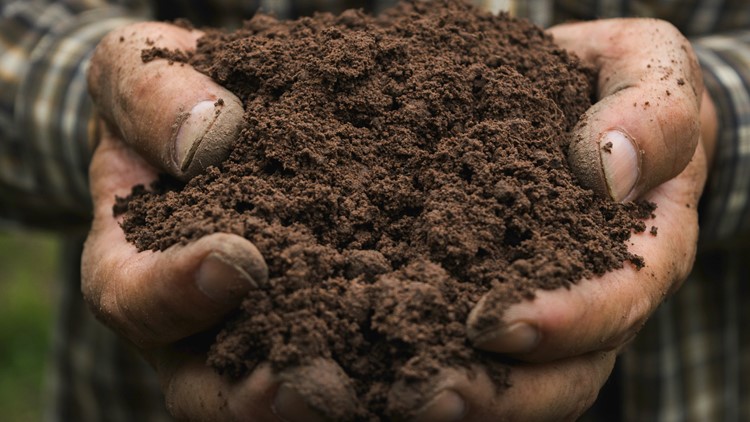PORTLAND, Ore. — Oregon Gov. Kate Brown signed an amendment to House Bill 2574 to allow for the “natural organic reduction” of bodies into soil.
It follows the move Washington made in 2019 when it became the first state to legalize human composting.
The process can be lengthy and in both Washington and Oregon, a site has to be licensed in order to house bodies that go through the decomposition process to become compost soil. The Herland Forest Natural Burial Cemetery in Klickitat County, Washington, houses the remains of more than 50 people who chose to be turned into compost.
“These are people who have chosen to use their final remains, their final option, to help protect this forest from being clear-cut and developed,” said forest steward Walt Patrick. He calls them the “guardians of the forest.”
The cost for “green burial” or an environmentally friendly burial can be much less expensive than a traditional burial service. To be buried in the Herland Forest, it cost only $3,000, which can be the cost of a casket alone. According to Patrick, this mimics how people were always buried, that is up until about 150 years ago.
The process breaks down like this:
The body is placed into a 1,000-pound cylinder-shaped, wooden cradle. Then, like with compost in the backyard, the body is layered with different kinds of organic material like wood chips, a series of bacteria, protozoa and fungi. The cradle helps in the necessary rotation that is needed to encourage the breakdown of the natural materials. The temperature of the mixture is monitored and kept between 130 and 155 degrees.
In February, when KGW’s Katherine Cook spoke to Patrick, he said that their first “investment,” which is what they call the bodies, had been composting in the cradle since December.
“We work on nature's clock,” said Patrick, who has a background in chemistry and physics. “People are going to be dead for a long time. There really isn't any hurry to get this done. We'd much rather take our time and get it done right.”
There isn’t a set amount of time it takes for a body to turn to compost. By law, the organic matter has to maintain a temperature of 131 degrees for three days to kill salmonella and other organisms to make sure the compost is safe for use.
Once the organic decomposition is complete, the material is sifted for inorganic material like the metal used in back, hip, knee and other surgeries and also teeth. One body, and the accompanying organic material, will create roughly 200 gallons of compost.
Loved ones can take as much or as little of the compost as they would like, or they can donate it to the forest.
“We'll use it to plant trees, and then they'll have a memorial tree for who and what they are,” said Patrick. “If somebody just wants to become a tree, then this is the best way to do it.”
This is Oregon’s second non-traditional means of dealing with the decomposition of bodies. The state also allows for alkaline hydrolysis which is a process that uses a solution of 95% water and 5% potassium hydroxide or sodium hydroxide (both forms of lye) to break down bodies. The resulting organic material can be dried and will resemble something close to cremated ashes.
Both the newly legalized body composting and alkaline hydrolysis are environmentally conscious ways to decrease your carbon footprint even after you have passed.
“If you get oxygen to decomposing flesh, the bacteria will decompose into carbon dioxide, which is easily consumable by plants,” said Patrick. “Without that, it will convert to methane, and methane is a 20-times worse greenhouse gas than carbon dioxide.”



